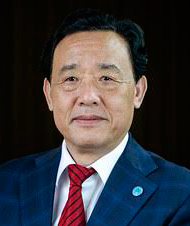Five years ago, world leaders agreed on the 2030 Agenda and the Sustainable Development Goals to eradicate persistent global challenges such as hunger and poverty, and also achieve a sustainable future for all. Yet, so far, these goals are far from being reached.
In a handful of countries in the Near East and North Africa (NENA), protracted crises are hamstringing efforts to eradicate hunger by 2030. Today, nearly 55 million people in the region are hungry, and the situation is particularly worrisome in countries afflicted by conflicts and violence: Iraq, Libya, Somalia, Sudan, Syria and Yemen.
Persistent poverty and inequality are also worrisome. In the NENA region, poverty is primarily a rural issue, with rural poverty rates reaching 80 per cent in some countries. The root causes of high rural poverty in the region are well-known, crises and civil unrest, poor agricultural productivity, limited access to infrastructure, health and education, lack of collective services, and above all, poor public and private investment.
On top of that, the region is under increasing pressure to cope with a rapidly expanding population, the adverse effects of climate change, extreme water scarcity and the degradation of natural resources.
The emergence of COVID-19 has put additional pressure on food systems. Due the pandemic and related containment measures, the region is seeing food supply chains being disrupted, harvests lost or delayed, jobs disappearing and livelihoods heavily affected.
To support countries and farmers in addressing persistent challenges related to food and agriculture and in building back better from the pandemic, Food and Agriculture Organisation (FAO) has actively promoted scalable and sustainable solutions. This forms the basis of the comprehensive FAO COVID-19 Response and Recovery Programme, which aims to mitigate the immediate impacts of the pandemic while strengthening the long-term resilience of food systems and livelihoods. Supporting the most vulnerable people by promoting economic inclusion and social protection and boosting smallholder resilience is among its top priorities.
Innovation and digitalisation
Leveraging innovation and technologies are also fundamental to leading countries through the challenges presented by COVID-19. Promising approaches and techniques for the NENA region include precision agriculture, hydroponics, desert agriculture and precision harvesting.
Digitalisation and communication technologies, in turn, have the potential to reduce costs, provide market access, improve services, create new job opportunities and help save resources.
Yet, there are barriers to the use of some technologies in the Near East and North Africa. The rural-urban digital divide remains very wide. Network coverage in rural areas remains limited. Digital literacy is another barrier, especially in rural areas. Thus, there is an urgent need for investment and capacity development on that front.
We have to ensure that innovation and digital transformation in agriculture work for everyone, especially for smallholder farmers, women and youth.
For that, we must forge strong partnerships between governments, development partners, the private sector, civil society and academia.
Countries can and should work together more and support each other, combining their resources, knowledge and skills to the benefit of farmers. This is the main objective of the FAO Hand-in-Hand Initiative that acts as a “matchmaker”, bringing countries with the highest poverty and hunger rates together with donor countries and financial partners to support development efforts.
The Hand-in-Hand initiative focuses on the potential of agricultural transformation and sustainable rural development. It is country-owned and supported by concrete evidence-based policies. It is reinforced by state-of-the-art tools such as the Hand-in-Hand Geospatial Platform and the FAO Data Lab for statistical innovation.
The FAO Regional Conference for the Near East, virtually hosted by the Sultanate of Oman from 21 to 22 September, is the perfect opportunity for Members and partners to forge ways to expedite action, agree on regional priorities, foster greater regional solidarity and leverage resources.
Having just entered the UN Decade of Action; we have ten precious years to achieve the Sustainable Development Goals by 2030. FAO is committed and ready to continue working with Members and partners to achieving the four betters: better production, better nutrition, a better environment and a better life for a better world.
The writer is director general of the Food and Agriculture Organisation of the United Nations (FAO)
